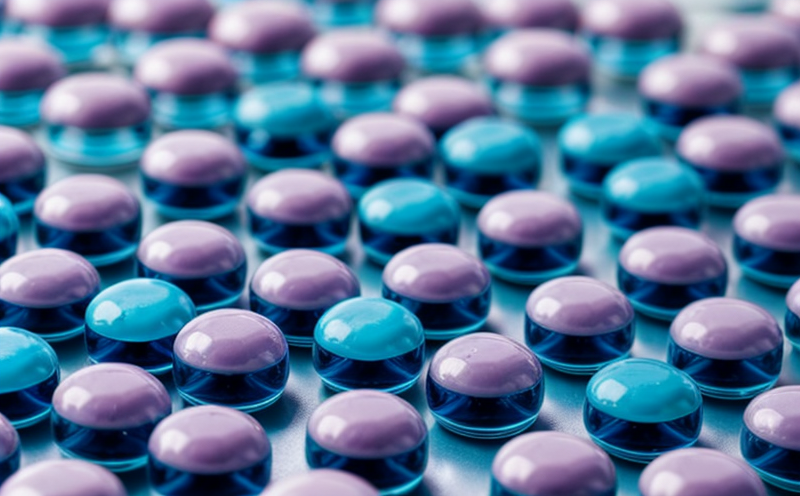PDA TR72 Microbial Control Testing in Pharma Water Systems
The Pharmaceutical Inspection Convention and Ph.D. (PIC/S) guideline PDA TR72, titled "Microbial Control in Pharmaceutical Water Systems," is a critical standard for ensuring the quality of water used in pharmaceutical manufacturing processes. This test ensures that water systems remain free from microbial contamination, which can compromise drug purity and efficacy.
Pharmaceutical water systems are integral to various production processes including cleaning, sterilization, and formulation. Contamination with microorganisms such as bacteria, fungi, or yeasts can lead to product spoilage, safety risks, and even legal repercussions. PDA TR72 provides a robust framework for monitoring these water systems to ensure they meet stringent quality standards.
The testing protocol outlined in PDA TR72 involves several key steps including sampling, identification of microorganisms, enumeration, and trend analysis over time. The primary goal is not only to detect contamination but also to understand the source and implement corrective measures promptly. This ensures that pharmaceutical manufacturers can maintain compliance with regulatory bodies like the FDA, EMA, and WHO.
Sampling for PDA TR72 testing involves taking water samples at strategic points within the water distribution network. These locations include feed-in points, storage tanks, distribution lines, and final use points. The samples are then analyzed using advanced microbiological techniques to identify and quantify microorganisms present in the water.
The identification of microorganisms is crucial as it helps determine the specific types of contaminants present. Techniques such as polymerase chain reaction (PCR) and mass spectrometry can provide rapid and accurate identification. Enumeration involves counting the number of colony-forming units (CFUs), which gives an indication of microbial load in the water.
Trend analysis is another vital component of PDA TR72 testing. By regularly monitoring microbial counts over time, trends can be identified that help predict potential issues before they escalate into major problems. This proactive approach allows for timely interventions to maintain water quality standards.
Compliance with PDA TR72 is essential for pharmaceutical companies aiming to ensure product safety and efficacy. Failure to adhere to these guidelines could result in non-compliance penalties, product recalls, or even legal actions. Therefore, investing in robust testing protocols like PDA TR72 can significantly mitigate these risks.
The implementation of PDA TR72 also benefits the environment by promoting sustainable practices that reduce water waste and minimize the use of harsh chemicals. By maintaining high standards of water quality, pharmaceutical manufacturers contribute to a cleaner environment while enhancing their reputation as responsible corporate citizens.
Understanding the importance of microbial control in pharmaceutical water systems is crucial for all stakeholders involved in drug manufacturing. From R&D engineers developing new formulations to procurement officers sourcing raw materials, everyone plays a role in ensuring that the final product meets the highest quality standards.
Why It Matters
The significance of microbial control in pharmaceutical water systems cannot be overstated. Contamination from microorganisms can lead to severe consequences such as compromised drug efficacy, increased risk of infections, and potential legal issues.
- Potential Risks: Microbial contamination can cause significant harm by introducing impurities into medicinal products. This not only affects the quality but also poses a direct threat to patient health.
- Regulatory Compliance: Adherence to guidelines like PDA TR72 ensures that pharmaceutical companies meet stringent regulatory requirements set by agencies worldwide.
- Product Safety: Maintaining high standards of water purity is essential for producing safe and effective medications.
The long-term impact of microbial contamination can be devastating, affecting both the reputation of manufacturers and public trust in pharmaceutical products. By implementing thorough testing procedures as outlined by PDA TR72, companies can avoid these pitfalls and ensure that their products remain reliable and trustworthy.
Why Choose This Test
- Comprehensive Coverage: The test ensures all aspects of microbial control are addressed, providing a holistic approach to water quality management.
- Advanced Techniques: Utilizes cutting-edge technology for accurate identification and enumeration of microorganisms.
- Proactive Monitoring: Regular trend analysis helps in identifying potential issues early on, allowing for timely interventions.
- Regulatory Compliance: Ensures adherence to international standards and guidelines, facilitating smoother interactions with regulatory bodies.
Selecting PDA TR72 microbial control testing offers numerous advantages over alternative methods. It provides a comprehensive solution that not only meets but exceeds industry expectations. By choosing this test, pharmaceutical manufacturers can enhance their reputation for quality and reliability, thereby gaining competitive edge in the market.
Competitive Advantage and Market Impact
The implementation of PDA TR72 microbial control testing offers significant advantages to pharmaceutical manufacturers. These include enhanced product quality, improved operational efficiency, and increased customer trust.
- Innovative Solutions: By leveraging advanced microbiological techniques, companies can stay ahead in terms of innovation and technology adoption.
- Better Reputation: Consistent adherence to high standards of water purity helps build a strong brand reputation among consumers.
- Competitive Edge: Companies that excel in microbial control testing are more likely to attract customers seeking reliable pharmaceutical products.
In the highly competitive pharmaceutical industry, maintaining top-notch quality is paramount. PDA TR72 ensures that manufacturers remain compliant with global standards, thereby reducing the risk of non-compliance penalties and product recalls. This not only protects the company’s financial interests but also strengthens its position in the market.
The impact extends beyond individual companies to encompass broader societal benefits. By promoting best practices in microbial control, pharmaceutical water systems contribute positively towards public health and safety. This aligns with the global effort towards sustainable development goals (SDGs), particularly those related to good health and well-being.





